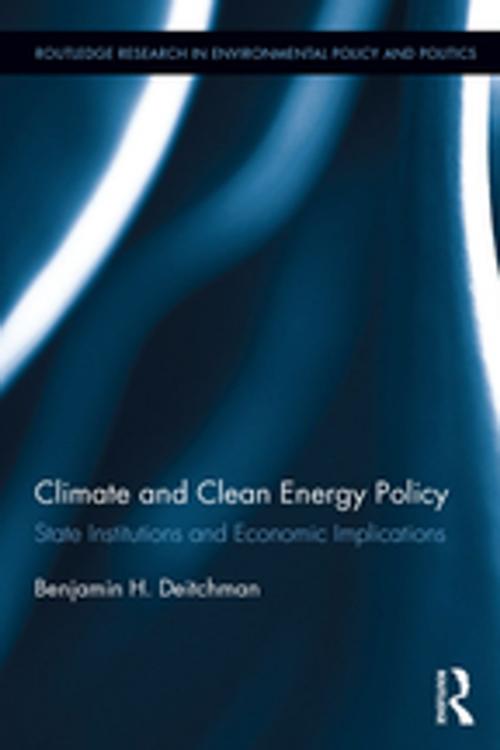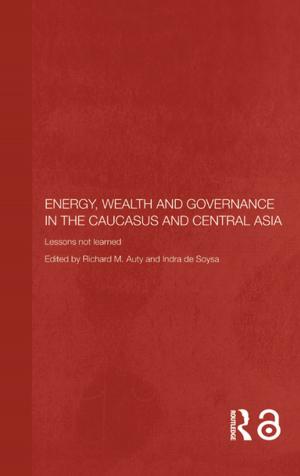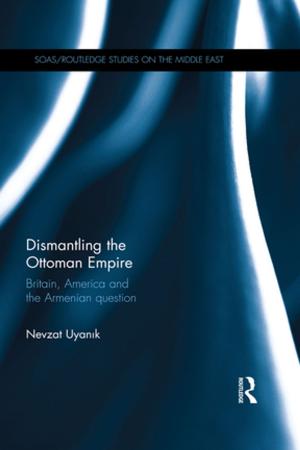Climate and Clean Energy Policy
State Institutions and Economic Implications
Nonfiction, Social & Cultural Studies, Political Science, Government, Public Policy| Author: | Benjamin H. Deitchman | ISBN: | 9781317288305 |
| Publisher: | Taylor and Francis | Publication: | December 1, 2016 |
| Imprint: | Routledge | Language: | English |
| Author: | Benjamin H. Deitchman |
| ISBN: | 9781317288305 |
| Publisher: | Taylor and Francis |
| Publication: | December 1, 2016 |
| Imprint: | Routledge |
| Language: | English |
State climate and clean energy policy will play a critical role in the future of the political dialogue and economic development. Policymakers from around the world already recognize the leadership of American states in this domain.
Rooted in public policy theory, and employing a mixed-methods approach that includes advanced economic analysis and qualitative research, Benjamin H. Deitchman explores the policy tools that address the politics and economics of clean energy development and deployment across all 50 states. Deitchman includes in his analysis international case studies of this policy context in Canada, Germany, and Australia to reveal different state-level policy tools, the politics behind the tools, and the economic implications of alternative approaches.
The rigorous analysis of the politics of state level institutions and economic implications of subnational climate and clean energy actions offers researchers, students, and policymakers with practical information to advance their understanding of these options in the policy process.
State climate and clean energy policy will play a critical role in the future of the political dialogue and economic development. Policymakers from around the world already recognize the leadership of American states in this domain.
Rooted in public policy theory, and employing a mixed-methods approach that includes advanced economic analysis and qualitative research, Benjamin H. Deitchman explores the policy tools that address the politics and economics of clean energy development and deployment across all 50 states. Deitchman includes in his analysis international case studies of this policy context in Canada, Germany, and Australia to reveal different state-level policy tools, the politics behind the tools, and the economic implications of alternative approaches.
The rigorous analysis of the politics of state level institutions and economic implications of subnational climate and clean energy actions offers researchers, students, and policymakers with practical information to advance their understanding of these options in the policy process.















